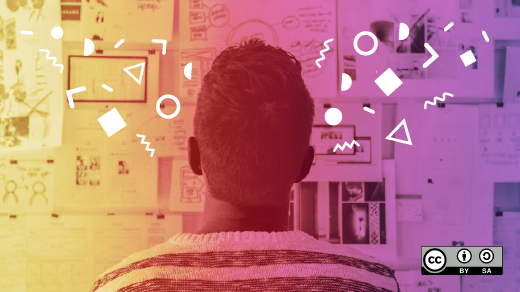When the Parkman Branch of the Detroit Public Library was flooded with bored children taking up all the computers during summer break, the library saw it not as a problem, rather an opportunity. They started a coding club, the Parkman Coders, led by Qumisha Goss, a librarian who is leveraging the power of Python to introduce disadvantaged children to computational thinking.
When she started the Parkman Coders program about four years ago, "Q" (as she is known) didn't know much about coding. Since then, she's become a specialist in library instruction and technology and a certified Raspberry Pi instructor.
The program began by using Scratch, but the students got bored with the block coding interface, which they regarded as "baby stuff." She says, "I knew we need to make a change to something that was still beginner friendly, but that would be more challenging for them to continue to hold their attention." At this point, she started teaching them Python.
Q first saw Python while playing a game with dungeons and skeleton monsters on Code.org. She began to learn Python by reading books like Python Programming: An Introduction to Computer Science and Python for Kids. She also recommends Automate the Boring Stuff with Python and Lauren Ipsum: A Story about Computer Science and Other Improbable Things.
Setting up a Raspberry Pi makerspace
Q decided to use Raspberry Pi computers to avoid the possibility that the students might be able to hack into the library system's computers, which weren't arranged in a way conducive to a makerspace anyway. The Pi's affordability, plus its flexibility and the included free software, lent more credibility to her decision.
While the coder program was the library's effort keep the peace and create a learning space that would engage the children, it quickly grew so popular that it ran out of space, computers, and adequate electrical outlets in a building built in 1921. They started with 10 Raspberry Pi computers shared among 20 children, but the library obtained funding from individuals, companies including Microsoft, the 4H, and the Detroit Public Library Foundation to get more equipment and expand the program.
Currently, about 40 children participate in each session and they have enough Raspberry Pi's for one device per child and some to give away. Many of the Parkman Coders come from low socio-economic backgrounds and don't have a computer at home, so the library provides them with donated Chromebooks.
Q says, "when kids demonstrate that they have a good understanding of how to use a Raspberry Pi or a Microbit and have been coming to programs regularly, we give them equipment to take home with them. This process is very challenging, however, because [they may not] have internet access at home [or] all the peripheral things they need like monitors, keyboards, and mice."
Learning life skills and breaking stereotypes with Python
Q says, "I believe that the mainstays of learning computer science are learning critical thinking and problem-solving skills. My hope is that these lessons will stay with the kids as they grow and pursue futures in whatever field they choose. In addition, I'm hoping to inspire some pride in creatorship. It's a very powerful feeling to know 'I made this thing,' and once they've had these successes early, I hope they will approach new challenges with zeal."
She also says, "in learning to program, you have to learn to be hyper-vigilant about spelling and capitalization, and for some of our kids, reading is an issue. To make sure that the program is inclusive, we spell aloud during our lessons, and we encourage kids to speak up if they don't know a word or can't spell it correctly."
Q also tries to give extra attention to children who need it. She says, "if I recognize that someone has a more severe problem, we try to get them paired with a tutor at our library outside of program time, but still allow them to come to the program. We want to help them without discouraging them from participating."
Most importantly, the Parkman Coders program seeks to help every child realize that each has a unique skill set and abilities. Most of the children are African-American and half are girls. Q says, "we live in a world where we grow up with societal stigmas that frequently limit our own belief of what we can accomplish." She believes that children need a nonjudgmental space where "they can try new things, mess up, and discover."
The environment Q and the Parkman Coders program creates helps the participants break away from economic and societal disadvantages. She says that the secret sauce is to "make sure you have a welcoming space so anyone can come and that your space is forgiving and understanding. Let people come as they are, and be prepared to teach and to learn; when people feel comfortable and engaged, they want to stay."







3 Comments